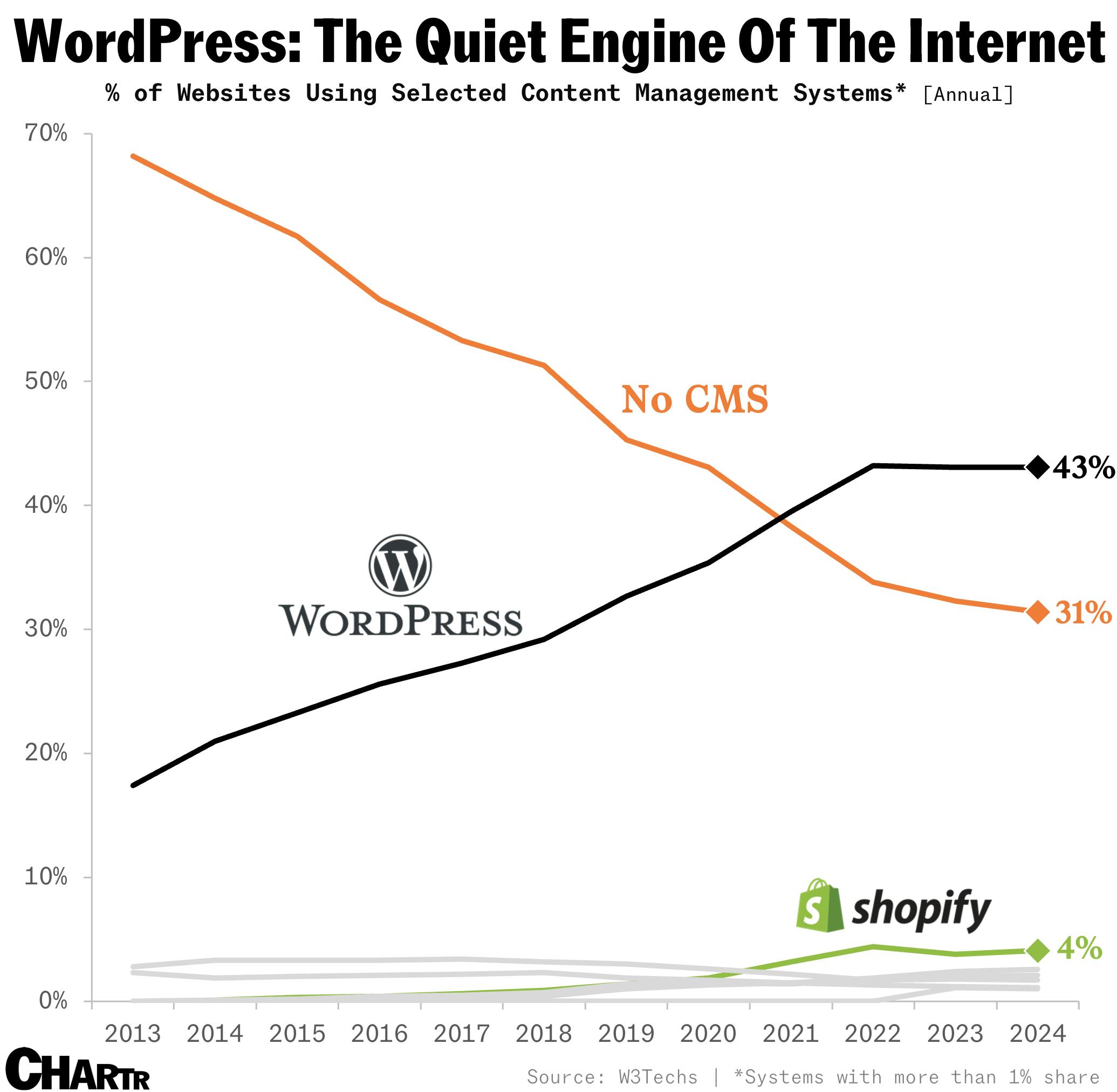Nearly half of all internet sites run on WordPress software
Who profits from the open-source ecosystem remains contentious
Bad hosts
Co-founder of WordPress Matt Mullenweg has come down hard on WP Engine, a company that essentially offers WordPress-as-a-service, describing the business as a “cancer” to the content management system he helped to create over 2 decades ago.
Mullenweg — also the CEO of Automattic, which owns Tumblr and also provides similar services to WP Engine — made the remark in a recent blog post, expanding on comments he’d made at a WordPress conference. In short, the entrepreneur feels that WP Engine profits excessively from the open-source WordPress software, without contributing enough to the CMS’s ecosystem, offering a watered-down version of WordPress to customers to maximize profits.
Although Mullenweg might not be a household name, the software at the center of this dispute is a critical cog in the internet’s infrastructure. Developed back in 2003 by Mullenweg and fellow blogger Mike Little, the software’s open source nature allows others to easily build on top of it, with tens of thousands of “plug-ins” available. Today, WordPress counts Meta, Samsung, and USA Today as customers, and powers over 43% of all sites on the internet. The next most significant single player in the space is e-commerce giant Shopify, which powers just 4% of all sites tracked by W3Techs.
